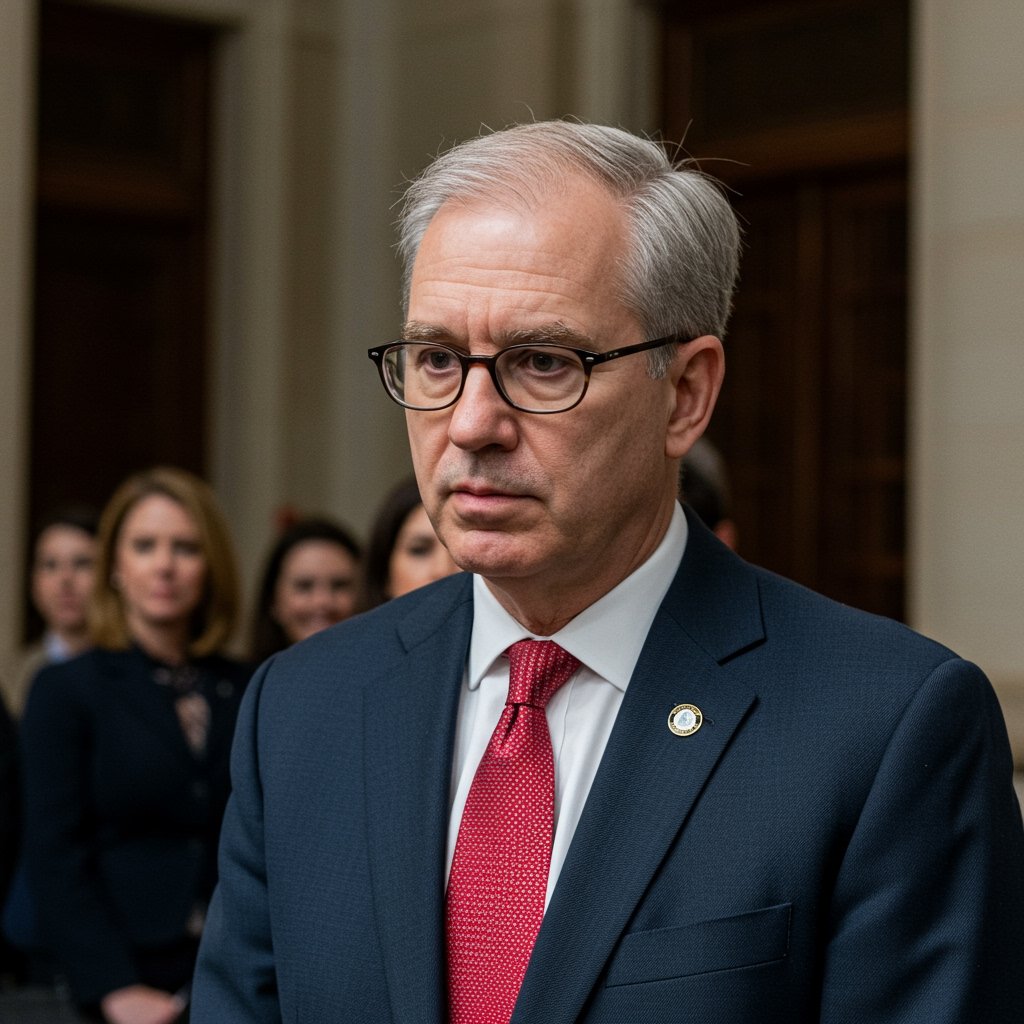California Assembly Committee Initiates Probe into Tech Lobbying Over AB 888
Sacramento, CA – The California Assembly Committee on State Investigations has formally initiated a sweeping inquiry into the lobbying activities surrounding the contentious Assembly Bill 888 (AB 888). This significant legislative proposal seeks to implement stringent new data privacy standards across the state. The probe aims to meticulously examine serious allegations of improper influence and opaque financial ties linking major technology companies, prominent lobbying organizations such as Capital Strategies West, and state legislators.
Focus of the Inquiry
At the heart of the investigation are concerns that the intense lobbying efforts by the tech sector may have unduly impacted the legislative process for AB 888. Committee Chairwoman Maria Rodriguez has publicly outlined the key areas the inquiry will focus on. According to Chairwoman Rodriguez, the committee will delve into campaign contributions made by tech companies and their affiliated lobbying groups to state legislators. Furthermore, the investigation will scrutinize the extent of access granted to lobbyists during the drafting and negotiation phases of the bill. This focus highlights concerns that specific industry interests may have been given preferential access or influence over the shaping of critical data privacy legislation.
The committee’s mandate is to ensure transparency and integrity in the legislative process. By examining both financial contributions and access, the inquiry seeks to uncover potential instances where lobbying efforts may have crossed the line from legitimate advocacy to undue influence, potentially compromising the public interest embedded in data privacy protections.
Context: AB 888 and Tech Lobbying Landscape
Assembly Bill 888 represents the latest legislative attempt in California to enhance consumer control over personal data. As proposed, the bill introduces stringent new requirements for how companies collect, process, and share user data, potentially imposing significant compliance burdens, particularly on large tech firms whose business models often rely heavily on data utilization. Bills of this nature are inherently complex and face significant scrutiny from various stakeholders, including consumer advocates, privacy rights groups, and the affected industries.
California is home to many of the world’s largest technology companies, and consequently, the tech sector constitutes one of the most active and well-funded lobbying forces in the state Capitol. These companies and their industry associations invest substantial resources in lobbying to shape legislation that impacts everything from taxation and labor practices to, crucially, data privacy and artificial intelligence regulation. The passage or failure of a bill like AB 888 can have multi-billion dollar implications for these corporations, making intense lobbying a predictable, though often controversial, part of the process.
The Role of Lobbying Groups Under Scrutiny
The investigation specifically names prominent lobbying groups, including Capital Strategies West, as entities whose activities will be examined. Lobbying firms like Capital Strategies West are hired by corporations and industry associations to represent their interests in the legislature. Their work typically involves meeting with lawmakers and staff, testifying at hearings, drafting amendments, and facilitating communication between their clients and policymakers. While lobbying is a protected form of advocacy, concerns arise when financial contributions are perceived as buying access or influence, or when lobbying activities occur outside of public view, creating ‘opaque financial ties’.
The committee’s focus on these specific groups suggests that they are key players in the lobbying campaign around AB 888 and that the investigation seeks to understand the nature and extent of their interactions with state legislators regarding this bill. The probe will likely seek to map the financial flows from tech companies through these lobbying entities and potentially back into political campaigns or other avenues of influence.
Committee’s Approach and Next Steps
The California Assembly Committee on State Investigations has signaled its commitment to a thorough and public process. The initial phase of the investigation involves information gathering, which, according to sources close to the inquiry, has already resulted in significant action. Sources indicate that several key lobbyists and industry executives involved in the AB 888 lobbying efforts have already received subpoenas. Subpoenas are legal instruments that compel individuals to provide testimony or produce documents, signifying the serious nature of the committee’s work and its intent to obtain comprehensive information directly from those involved.
The committee has also set a preliminary timeline for public engagement. Initial public hearings related to the investigation are scheduled to commence in late February. These hearings will provide an opportunity for committee members to question witnesses under oath and for the public to gain insight into the findings as the investigation progresses. The hearings are expected to bring increased transparency to the lobbying tactics employed and the interactions between industry representatives and lawmakers during the AB 888 legislative cycle.
Broader Implications
This investigation extends beyond the specifics of AB 888. It represents a significant effort by a legislative committee to exercise oversight over the lobbying process itself, particularly concerning a high-stakes policy issue like data privacy. The probe could have broader implications for lobbying regulations and ethics rules in California, potentially leading to calls for increased transparency requirements, stricter limits on contributions, or enhanced enforcement mechanisms.
The focus on ‘opaque financial ties’ suggests the committee may be looking for arrangements that are not fully captured by existing public disclosure laws, potentially shining a light on grey areas in lobbying finance. The outcome of this investigation could influence public perception of the influence of money in politics and the integrity of the legislative process in California, especially as technology and data privacy continue to be central policy challenges.


















